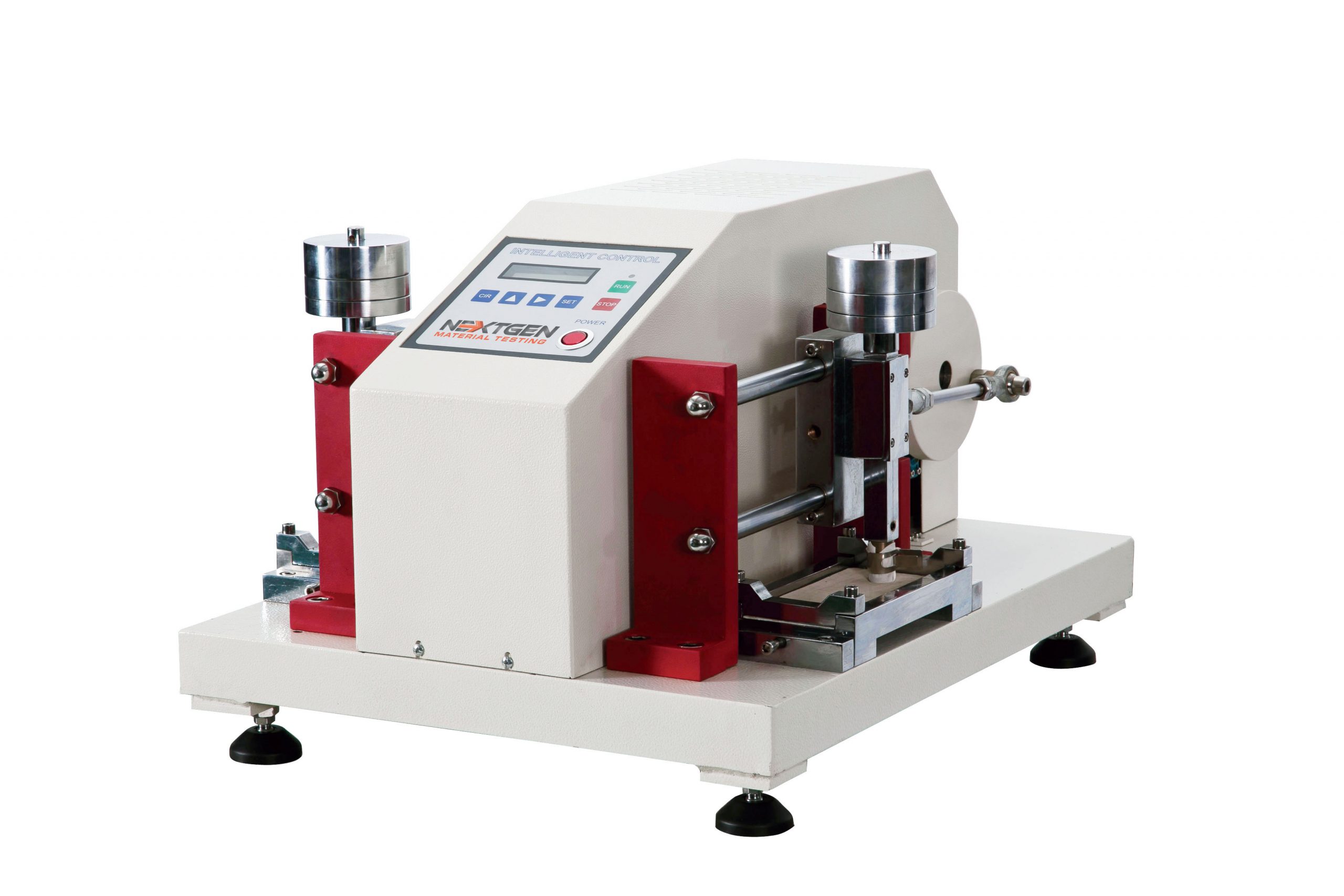
Rubber Testing Equipment

Standards






The machine is used to test the dyeing of the fabric, and the fade degree of the leather after dry or wet rubbing. The test method involves the specimen to be fastened to the base of the crocking meter and rubbed with an abrasive hammer attached to a wet or a dry cloth under controlled conditions. The transfer of colour is then measured using a scale to evaluate the rating of the specimen's dyeing grade.
Specifications
| Type | GenCrock-A | GenCrock-B |
|---|---|---|
| Capacity | 2 sets | 1 sets |
| Load | 9°0, 2N | |
| Abrasion Stroke | 104°3mm | |
| Friction Head Diameter | Ø16°0, 1mm | |
| Abrasion Speed | 60cpm | |
| Counter | LCD 0 - 999,999 | |
| Dimensions (W X D X H) | 60x46x36cm | 65x13x23cm |
| Weight | 60kg | 20kg |
| Power | 110V/60Hz or 220V/50Hz | |
FAQs
The Electric Crocking Tester – GenCrock performs colorfastness testing by simulating rubbing on fabric or leather specimens. In this process, the specimen is securely fastened to the base of the crocking meter, where it is subjected to friction from an abrasive hammer equipped with either a dry or wet cloth, depending on the test requirements.
Under controlled conditions, the hammer rubs against the material, causing dye from the specimen to transfer to the cloth, simulating real-world wear conditions. After the test, the degree of color transfer is measured using a rating scale, which helps determine the dyeing grade and durability of the material's color. This method provides valuable insight into how well a material will maintain its appearance when subjected to friction, thus allowing textiles and leather products to maintain their quality.
Click here to learn more about the product or here to receive a personalized quote.
Yes, the Electric Crocking Tester – GenCrock complies with ASTM D2054, which is a standard that specifies the test method for evaluating colorfastness and color transfer in textile fabrics and leather materials. ASTM D2054 outlines the procedures for determining how much dye or colorant transfers from the material to another surface under controlled rubbing conditions, both in wet and dry states.
This standard is a necessity in the textile and leather industries, where color durability under friction is crucial to the quality of the products. Compliance with ASTM D2054 means that GenCrock provides standardized, reliable color transfer results, allowing manufacturers to assess how well their materials will retain color integrity over time. This guarantees that the fabric or leather will maintain its appearance during regular use, which is an important factor in consumer satisfaction and quality control.
Click here to learn more about the product or here to receive a personalized quote.
The GenCrock-A model has a capacity of 2 sets, allowing it to test two specimens both at once. This feature is particularly useful for laboratories with high testing demands, as it effectively doubles throughput, allowing it to be more efficient at handling multiple samples at once.
In contrast, the GenCrock-B model has a capacity of 1 set, suitable for environments with lower testing volumes or where single-sample testing is sufficient. This model is more compact, catering to labs with space constraints or smaller workloads.
As a result of these differences in capacity, each model can be customized to satisfy a variety of laboratory needs, with the GenCrock-A offering increased productivity and the GenCrock-B providing a more space-efficient solution.
Click here to learn more about the product or here to receive a personalized quote.
The Electric Crocking Tester – GenCrock has a load specification of 9°0, 2N. This load setting is used during testing to apply consistent pressure on the specimen as it is rubbed against a dry or wet cloth. The controlled load allows for accurate color transfer measurement, allowing for reliable assessment of colorfastness in materials such as
This standardized load is crucial for producing reproducible test results, as it replicates typical conditions that materials might encounter in real-world use. By maintaining this specific load, GenCrock provides a consistent benchmark for evaluating dye or color durability on various materials.
Click here to learn more about the product or here to receive a personalized quote.
GenCrock's abrasion stroke length is 104°3mm, which defines the precise friction head movement distance over the specimen. This stroke length is optimized to replicate typical wear conditions so that each test accurately reflects how the material endures friction over time.
With this controlled stroke length, the GenCrock simulates consistent abrasion, allowing reliable assessments of color durability in textiles, leather, and other materials. The specific measurement helps standardize test conditions, yielding reproducible results across different samples. This stroke setting is ideal for evaluating materials' colorfastness and dye stability, thereby guaranteeing product quality and durability for end-use applications.
Click here to learn more about the product or here to receive a personalized quote.
The Electric Crocking Tester – GenCrock has a friction head diameter of Ø16°0, 1mm. With this specific diameter, consistent contact is provided between the wheel and the specimen, which results in accurate and uniform abrasion across the entire surface of the specimen.
The diameter of the friction head plays a key role in replicating the effect of typical friction on materials, allowing for a precise assessment of colorfastness. With this exact measurement, GenCrock offers standardized conditions that help produce reliable and reproducible test results for different samples and testing sessions.
Click here to learn more about the product or here to receive a personalized quote.
The Electric Crocking Tester – GenCrock has an abrasion speed of 60 cycles per minute (CPM). This speed is specifically calibrated to replicate the friction that materials like fabrics and leather experience under typical use. By maintaining a standardized speed, GenCrock provides reliable and consistent results for colorfastness testing, making certain that each specimen undergoes uniform rubbing pressure.
This abrasion speed helps assess how well a material’s dye or color holds up against wear, providing crucial data for manufacturers in textiles, leather, and other industries. It enables labs to predict how colors will behave over time, particularly in products that encounter frequent handling or movement. With 60 CPM, GenCrock achieves a balance between testing efficiency and result accuracy, allowing quality control labs to meet industry standards for durability assessments.
Click here to learn more about the product or here to receive a personalized quote.
The Electric Crocking Tester – GenCrock is equipped with an LCD counter capable of tracking cycles from 0 up to 999,999. This counter allows operators to set precise cycle counts, enabling testers to run specific abrasion cycles for each specimen. By displaying the exact number of cycles, the counter helps achieve consistent testing of multiple samples, which is a requirement for accurate colorfastness evaluations.
With a range extending up to 999,999 cycles, the GenCrock can accommodate extensive testing, which is beneficial for materials requiring thorough wear simulations. This feature is especially valuable for quality control labs, where tracking the number of rub cycles provides insights into how a material’s color holds up under different conditions, whether for short or extended durations. The large counter capacity provides greater testing flexibility, making the GenCrock suitable for both basic and intensive testing needs.
Click here to learn more about the product or here to receive a personalized quote.
The GenCrock-A model has dimensions of 23.6 x 18.1 x 14.2 inches (or 60 x 46 x 36 cm). This size provides a stable and compact footprint ideal for laboratories that need efficient equipment setups but still benefit from dual-sample testing capacity. Its balanced dimensions allow it to integrate smoothly into a variety of laboratory layouts without taking up excessive space, which makes it suitable for moderate- to high-volume testing environments.
The GenCrock-B model, by comparison, is even more compact, with dimensions of 25.6 x 5.1 x 9.1 inches (or 65 x 13 x 23 cm). This model is designed for single-sample testing and fits easily in laboratories with limited space. Its small footprint makes it ideal for quality control environments that require less extensive testing throughput. These dimension options give labs flexibility, allowing them to choose the model that aligns best with their available workspace and testing demands.
Click here to learn more about the product or here to receive a personalized quote.
The GenCrock-A model weighs approximately 132 lbs (60 kg), which makes it a robust option for labs that require stability during dual-sample testing. This weight helps ensure minimal movement or vibration during operation, which benefits consistent results over multiple tests. Its substantial build is suitable for labs with medium to high testing demands, offering durability for rigorous use.
The GenCrock-B model, on the other hand, is lighter at 44 lbs (20 kg). This lighter weight makes it more portable and convenient for labs that need to rearrange or relocate equipment. Its compact build is ideal for smaller labs or single-sample testing setups, providing a balance between functionality and ease of movement. This difference in weight between the models allows laboratories to select the best option based on their space, stability needs, and testing volume.
Click here to learn more about the product or here to receive a personalized quote.
Both the GenCrock-A and GenCrock-B models operate with dual voltage compatibility, supporting 110V/60Hz and 220V/50Hz power configurations. This flexibility allows GenCrock models to be used globally, as they adapt to North American and international power standards without special converters.
This feature benefits laboratories that operate across different regions or need to relocate equipment, as it provides easy integration into varied electrical setups. Dual voltage compatibility ensures the GenCrock can be easily set up in a wide range of facilities, providing an accessible and adaptable choice for textile and leather testing labs worldwide.
Click here to learn more about the product or here to receive a personalized quote.
The GenCrock-A and GenCrock-B models differ in several key aspects that cater to a range of testing requirements and laboratory setups:
- Testing Capacity: The GenCrock-A model is designed with a capacity for 2 sets, allowing it to conduct dual-sample tests simultaneously, which is ideal for labs that handle high testing volumes. In contrast, the GenCrock-B model has a capacity for 1 set, thus being more suitable for single-sample testing and lower testing volumes.
- Size and Weight: The GenCrock-A is larger, with dimensions of 23.6 x 18.1 x 14.2 inches (60 kg), whereas the GenCrock-B is more compact at 25.6 x 5.1 x 9.1 inches (20 kg). The GenCrock-B’s smaller size and lighter weight make it easier to fit into limited spaces and more portable for labs with restricted space.
- Functionality and Usability: With its dual-sample capacity and large footprint, the GenCrock-A is suitable for high-throughput environments, while the GenCrock-B’s compact design is ideal for focused, single-sample testing, offering flexibility for smaller or mobile labs.
Based on these differences, labs are able to select the model that is most appropriate for their testing volume, available space, and operational requirements.
Click here to learn more about the product or here to receive a personalized quote.
The Electric Crocking Tester – GenCrock is ideal for professionals in the textile, leather, and manufacturing industries focused on product quality and color durability. It helps these industries test for colorfastness, evaluating how well dyes and pigments withstand friction in both dry and wet conditions.
For quality control laboratories, GenCrock provides a reliable way to test materials under standardized conditions, assuring that products meet durability requirements before reaching the consumer. Leather goods manufacturers and textile producers can also benefit, as the machine helps guarantee that fabrics, leathers, and other materials retain their color when subjected to wear, thereby improving product longevity.
Click here to learn more about the product or here to receive a personalized quote.
The AATCC Crockmeter Test Cloth is the primary consumable required for conducting colorfastness tests on the Electric Crocking Tester – GenCrock. This cloth is specially designed to capture color transfer from fabrics and leather during both dry and wet rubbing tests.
For each test cycle, the cloth must be cut into 2"x 2" straight-edge squares and mounted on the test head. Importantly, a new piece of test cloth is required with every test specimen and test cycle. This practice guarantees that the testing environment remains consistent, allowing accurate measurement of color transfer without any influence from previous tests.
AATCC Crockmeter Test Cloths meet AATCC Test Method 8 standards, aligning with industry expectations for color transfer analysis. These consumables can be sourced directly from NextGen, providing laboratories and quality control departments have a reliable supply for their continuous testing needs.
Click here to learn more about the product or here to receive a personalized quote.
The AATCC Test Method 8 is a globally recognized standard for testing colorfastness, focused on how well fabrics and leather resist color transfer under dry and wet conditions. This method is governed by the American Association of Textile Chemists and Colorists (AATCC), a leading authority on textile testing and standards.
This testing protocol outlines the steps for evaluating dye durability by measuring the amount of color that transfers from a specimen to a standardized test cloth during controlled rubbing. The AATCC Test Method 8 applies to a wide range of textiles, from woven and knitted materials to dyed, printed, or otherwise treated fabrics.
According to AATCC Test Method 8, GenCrock makes sure that test results are accurate and comparable across different types of materials. This compliance enhances the reliability of the tester, allowing it to be used for any industry needing a dependable method to assess colorfastness in fabrics and leather.
Click here to learn more about the product or here to receive a personalized quote.
Once a test cycle with GenCrock is complete, results are analyzed according to the AATCC Test Method 8 guidelines to determine the degree of color transfer. This test evaluates dye durability by grading the color transfer onto the test cloth on a scale from 1 to 5.
Grade 5 indicates no color transfer, suggesting excellent dye durability, while Grade 1 represents a high level of color transfer, indicating potential colorfastness issues. This grading scale allows manufacturers to objectively assess dye or pigment performance under simulated real-world conditions, where materials may be subjected to friction and wear.
GenCrock’s ability to provide clear, consistent grading based on AATCC Test Method 8 is essential for quality control. Manufacturers rely on this data to verify that their fabrics and leathers will retain their appearance and color integrity over time, meeting industry and consumer expectations for durability.
Click here to learn more about the product or here to receive a personalized quote.
Setting up the Electric Crocking Tester – GenCrock is straightforward, making it an efficient tool for high-throughput testing environments. The first step is to mount an abrasive pad onto the abrasive head, which generates the necessary friction during testing. This pad is consumable sourced from NextGen and designed to reproduce real-world abrasion effects.
Once the abrasive pad is secured, place the test specimen in the clamping fixture, which holds it firmly in position. Set the desired test cycle count using the machine’s LCD counter, and then activate the machine to begin the test. The GenCrock applies consistent pressure to the specimen as it undergoes dry or wet rubbing, allowing accurate and reproducible results.
After the cycle count is completed, the color transfer on the test cloth can be evaluated to assess dye durability. This easy setup and operation makes GenCrock an effective tool for quality control labs, assuring that each test is conducted precisely and with minimal downtime.
Click here to learn more about the product or here to receive a personalized quote.
The AATCC Test Method 8 is a method by the American Association of Textile Chemists and Colorists (AATCC).
Related Products
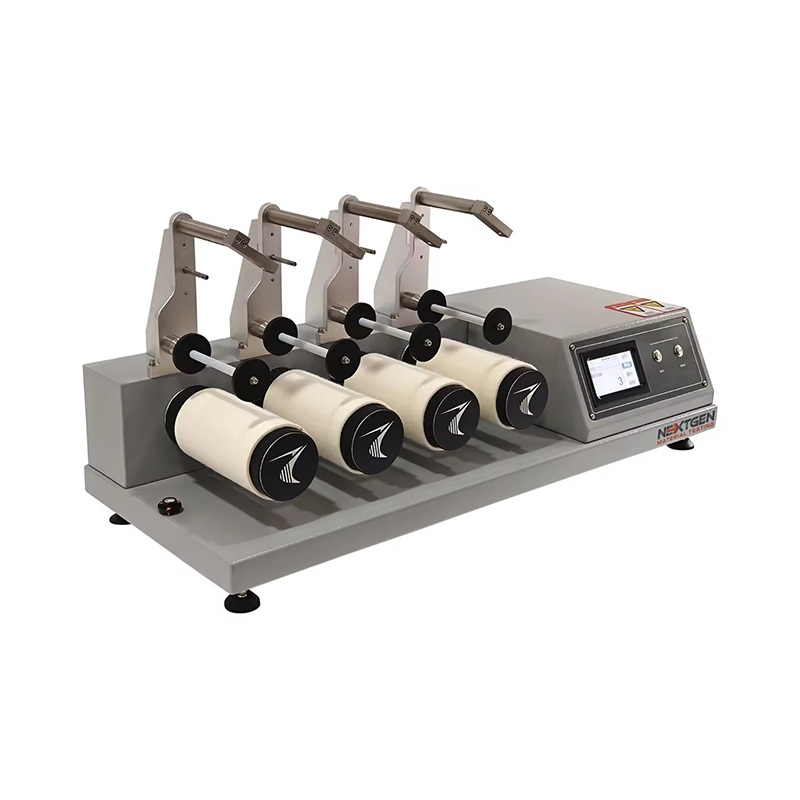
ICI / Mace Snag Tester
Discover the Fabric Textile ICI / Mace Snag Tester, a reliable tool for assessing fabric snagging under normal wear conditions.

Moving Die Rheometer (MDR)
Introducing the NG-MDR Moving Die Rheometer, your solution for accurately assessing the curing and processing characteristics of vulcanized rubber compounds. Designed for precision, this state-of-the-art rheometer captures the characteristic curve and parameters of rubber vulcanization by measuring the torque applied to the oscillating die.
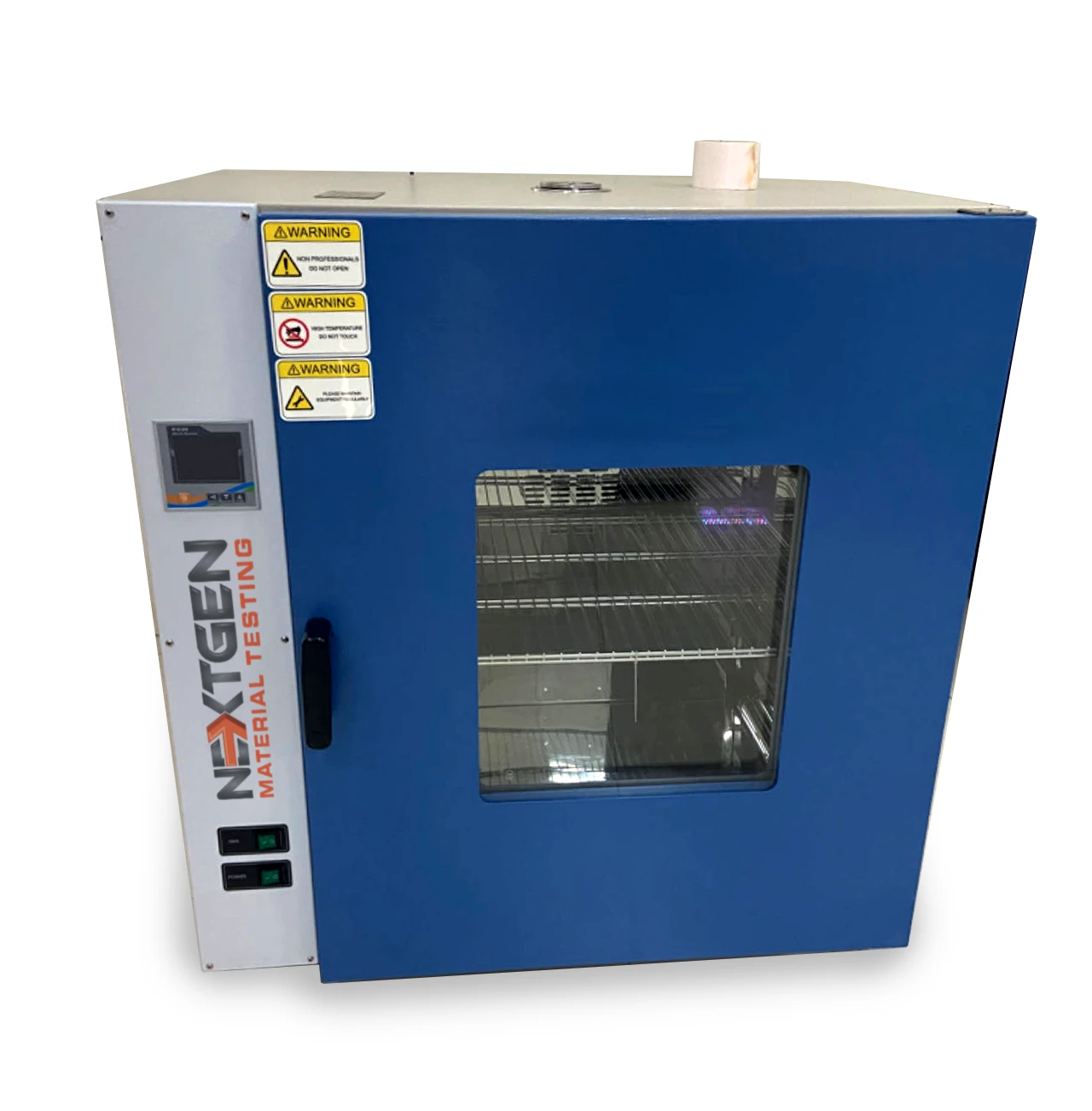
Aging Oven
Our aging oven is well-suited for performing drying, baking, wax melting, and sterilization experiments in industrial and mining enterprises, as well as in laboratories, colleges, and research institutions.
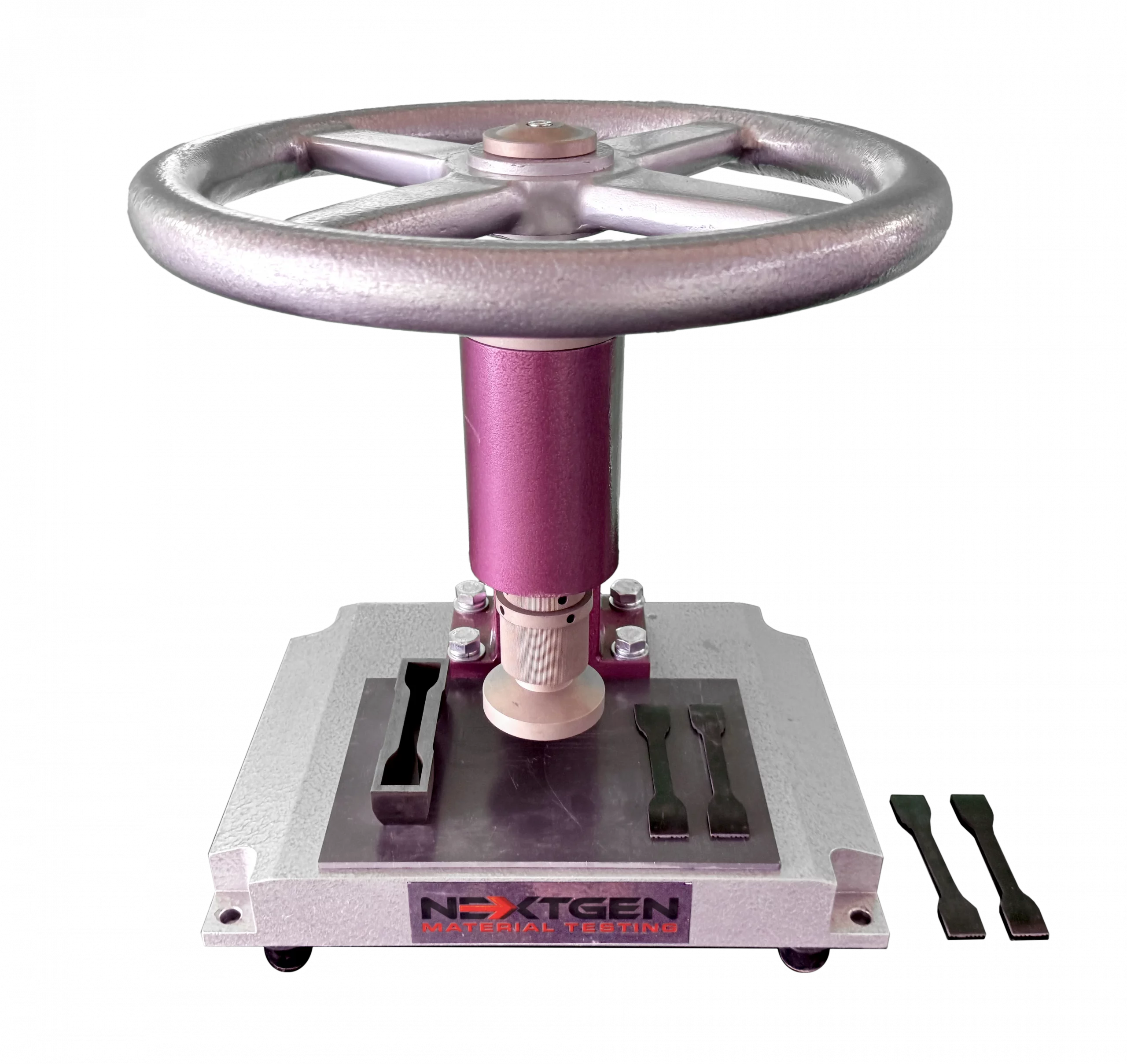
NG-T-Press M Series - Manual Cutting Press System for Rubber Tensile Specimens
Our newest manual cutting press system is suitable for laboratories to create specimens from rubber, tape, and special materials.
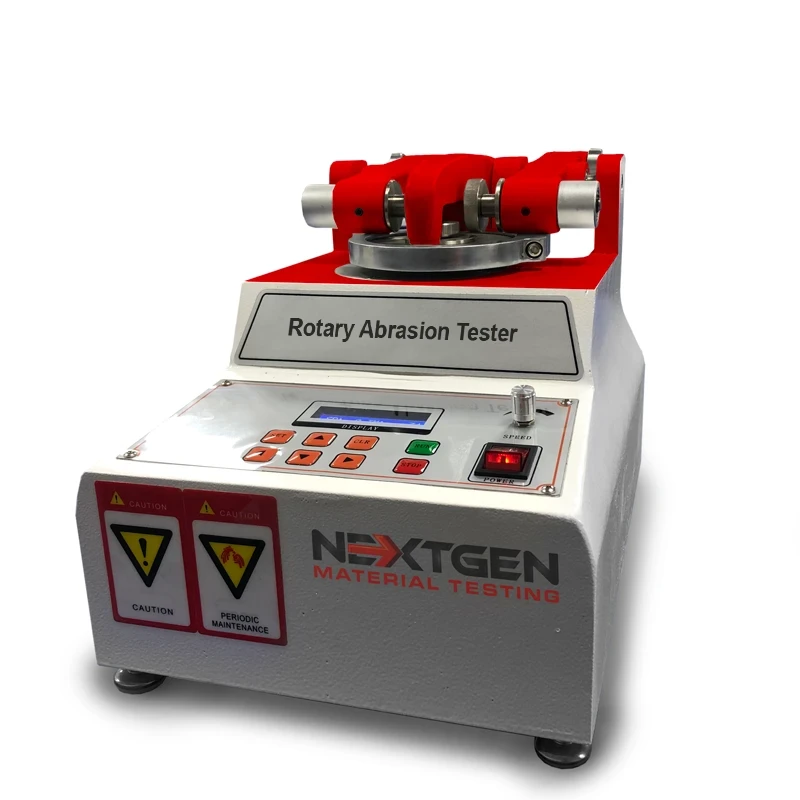
Rotary Abrasion Tester Single & Dual Wheel
GenRotary used evaluate abrasion resistance. It can conduct tests on a wide range of materials such as: cloth, paper, paint, plywood, leather, tile, glass, rubber etc. It tests the specimen by rotating it while in contact with the grinding wheel and applying the required pressure. The Joss of weight reflects on the change in weight of the specimen. The unit also has an intelligent power failure recovery function.
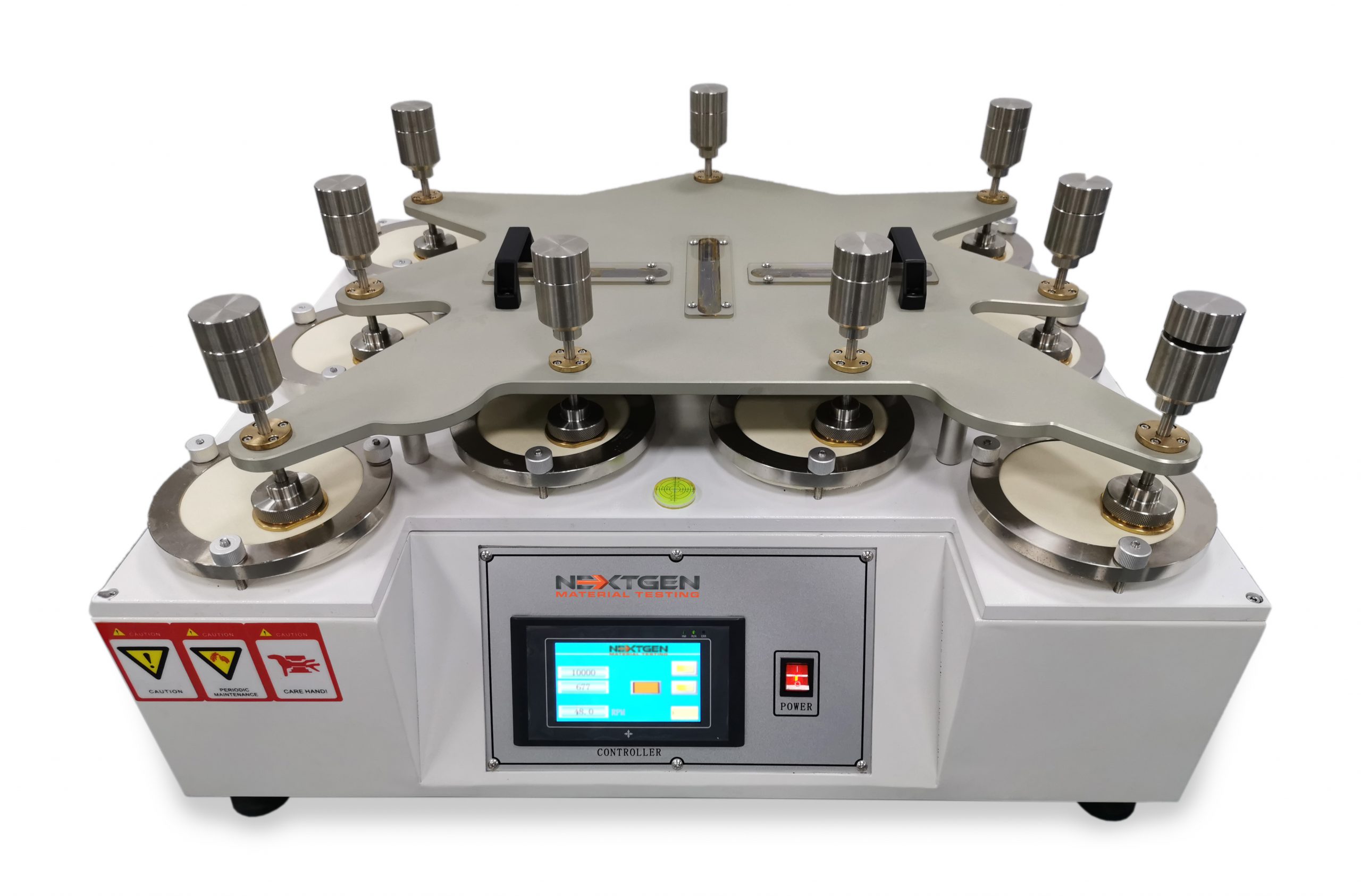
9-Station Martindale Abrasion Tester
The GenDale - Martindale Abrasion Tester is mainly used to test shoe fabric, shoe lining, and many other types of shoe related materials.
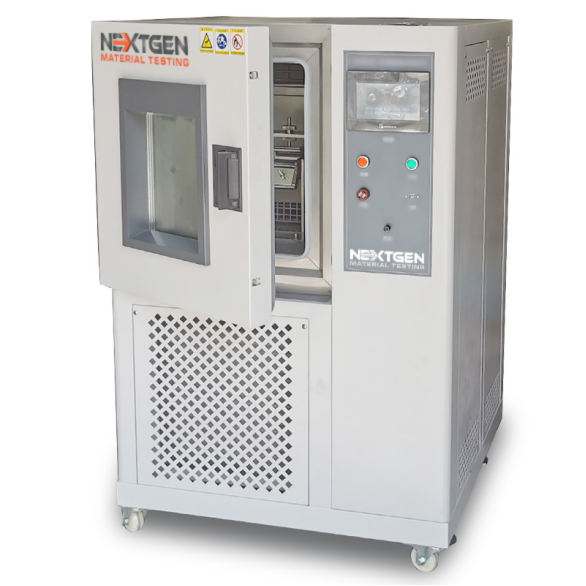
GenRoss-CH - Ross Flex Tester with Low Temperature Chamber
GenRoss-CH is an advanced Ross Flex Tester designed for assessing the cold resistance of materials in low temperature environments.

Linear Taber Abrasion Tester
NextGen's linear abrasion meters evaluate the abrasion and scratch resistance of products, along with color transmission.
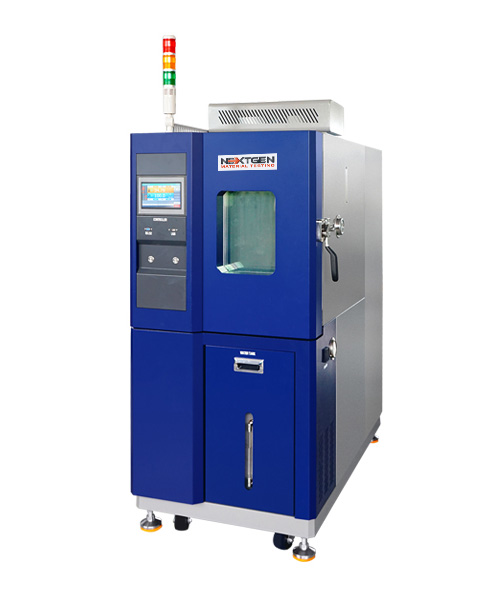
NextGen Environmental Chambers NG-EC 100,150,225,408,1000
The temperature and humidity NextGen Environmental Chambers features a sturdy cabinet made of cold-rolled steel and stainless steel.
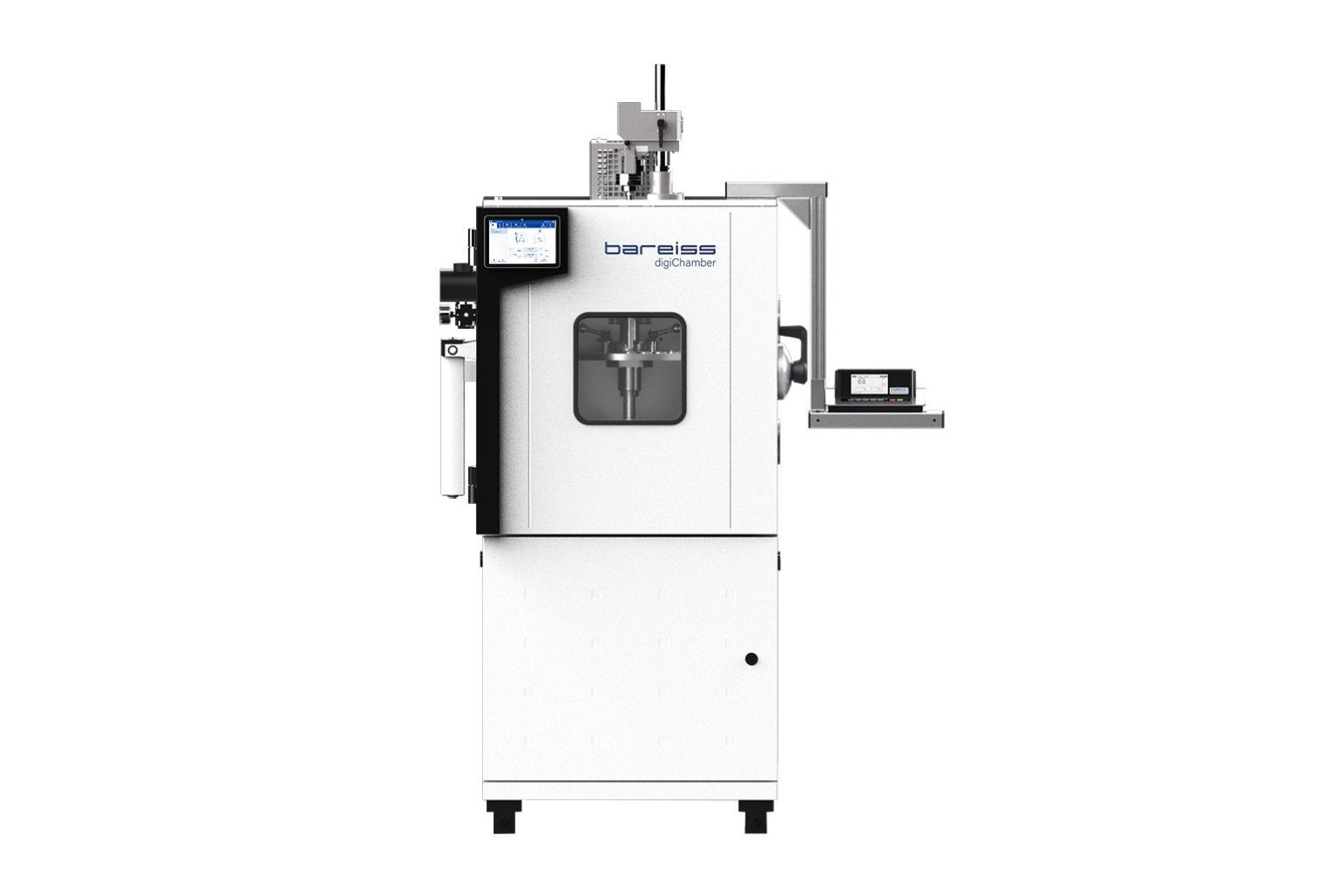
digiChamber - Temperature Controlled Hardness Testing
Discover digiChamber from NextGen Material Testing, the advanced temperature-controlled hardness tester developed by Bareiss.
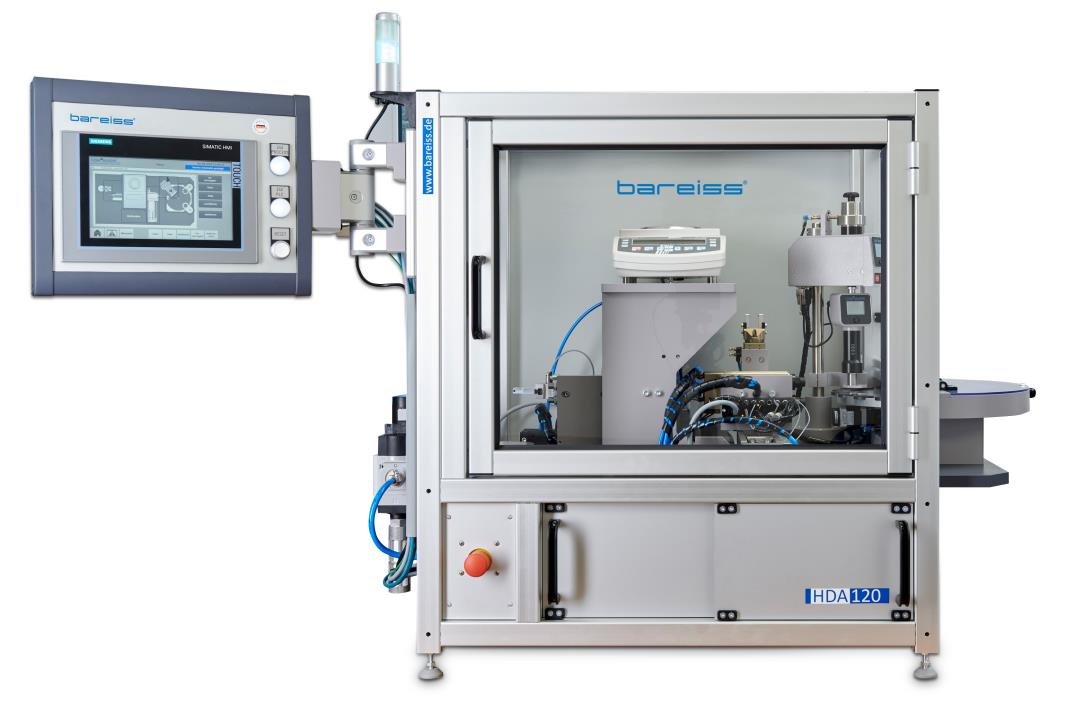
HDA 120 - Hardness and Density Automation Test System
The HDA 120 test system is a versatile solution for semi-automatic detection of sample hardness and density.
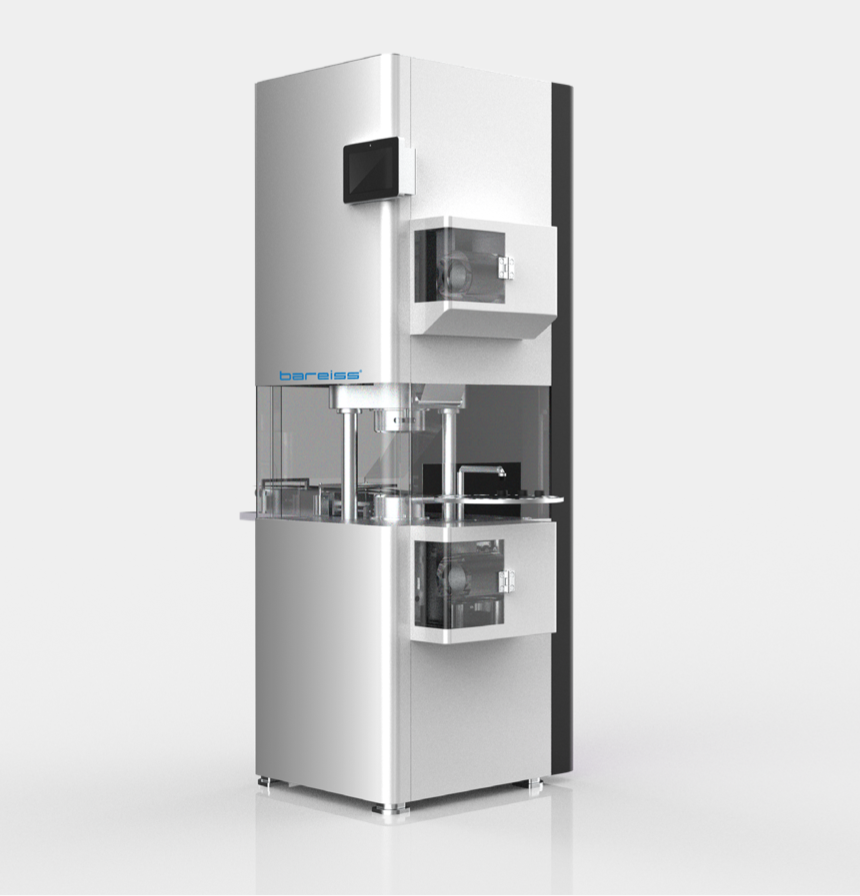
RPA Ultra - Advanced Rubber Process Analyzer Rheometer
RPA Ultra is an advanced rubber process analyzer rheometer that measures the dynamic and static characteristics of raw rubber compounds
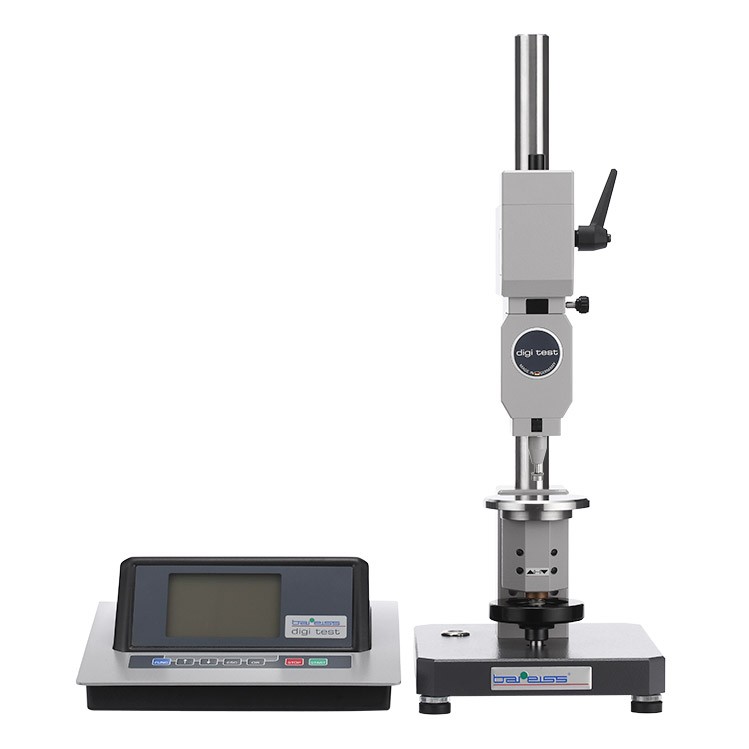
Automatic Shore, IRHD and VLRH Hardness Testing System
NextGen is proud to present our German line of fully-automatic Shore, IRHD and VLRH hardness testing system for plastic materials, plastic and foam compounds for the ultimate precision, accuracy and repeatability, exceptional ease-of-use and maintenance. Experience the industry leader for specimen testing including rubbers, plastics, foams, composites, o-rings, and more.
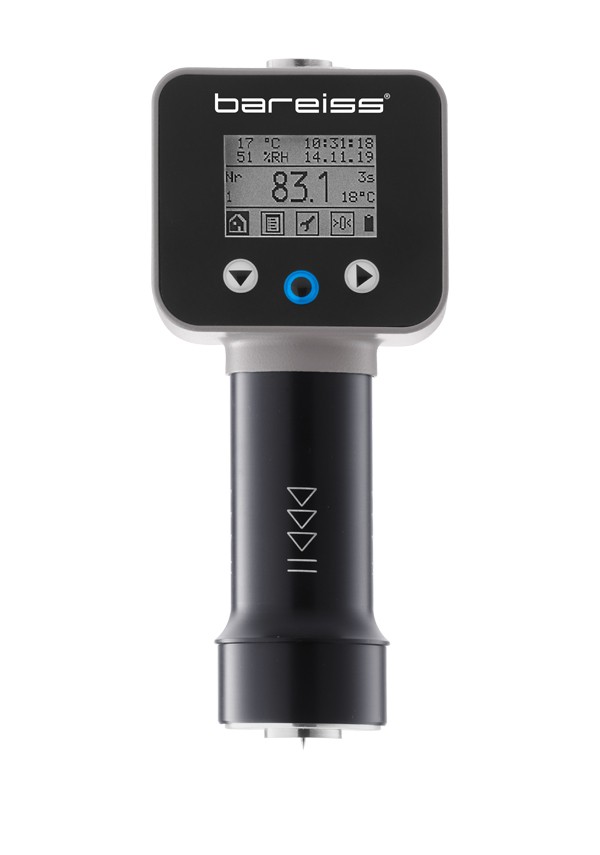
Advanced Portable Shore Durometer System with Test Stand Options
HPEIII is NextGen's advanced German line of equipment that is the new generation of HPE systems ideal for various plastic and plastic compound testing. The new system enhancements offer advantages including temperature sensor, reading values of ambient temperature and humidity, historical hardness value display, larger LCD display, standard USB connection and much more. These advanced portable systems can be paired up with either manual or automatic motorized test stands to help eliminate the human error factor and maximize accuracy and repeatability between test when switching from one operator to the next.
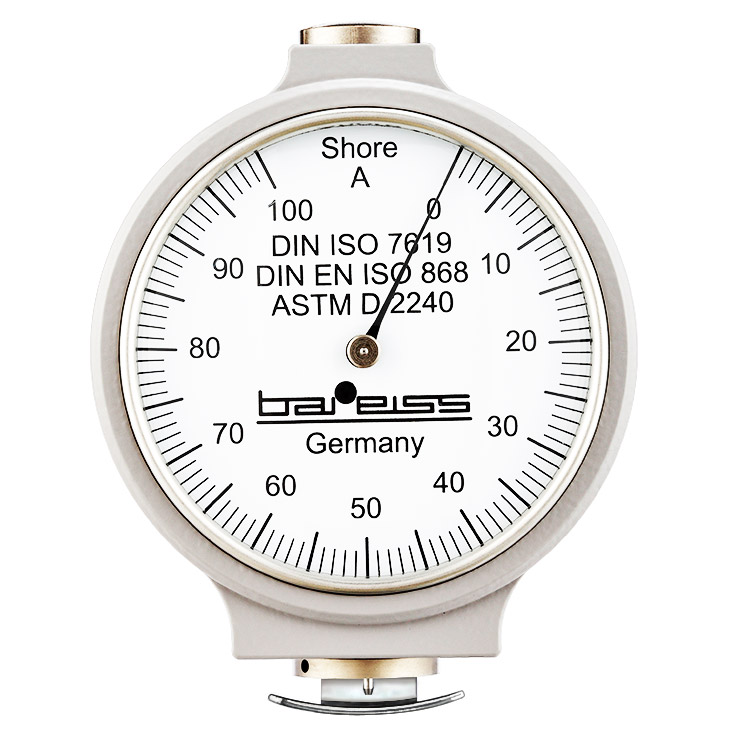
Classic Analogue Shore Durometer with Test Stand Options
This German-manufactured system has been the global benchmark of Shore hardness testing systems since 1954. With ever enhanced ergonomic design, the HP Shore Hardness Tester is both visually appealing and precise rubber and plastic testing system as it has been for nearly 50 years.
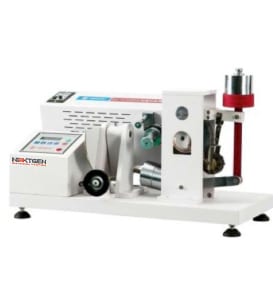
Akron Abrasion Tester
GenKron is used together with a special balance for testing the abrasive consumption of materials. The measurements are done through volumetric loss of a rotating specimen exposed to the action of a standard grinding wheel. It is especially suited for testing harder materials such as shoe soles, tires and other rubber materials.
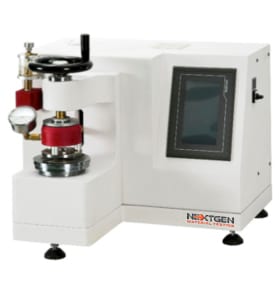
Burst Strength Tester for Fabric
GenBurst is the Burst Strength Tester designed to test anti-rupture strength of variety of materials such as leather, paper and fabric.
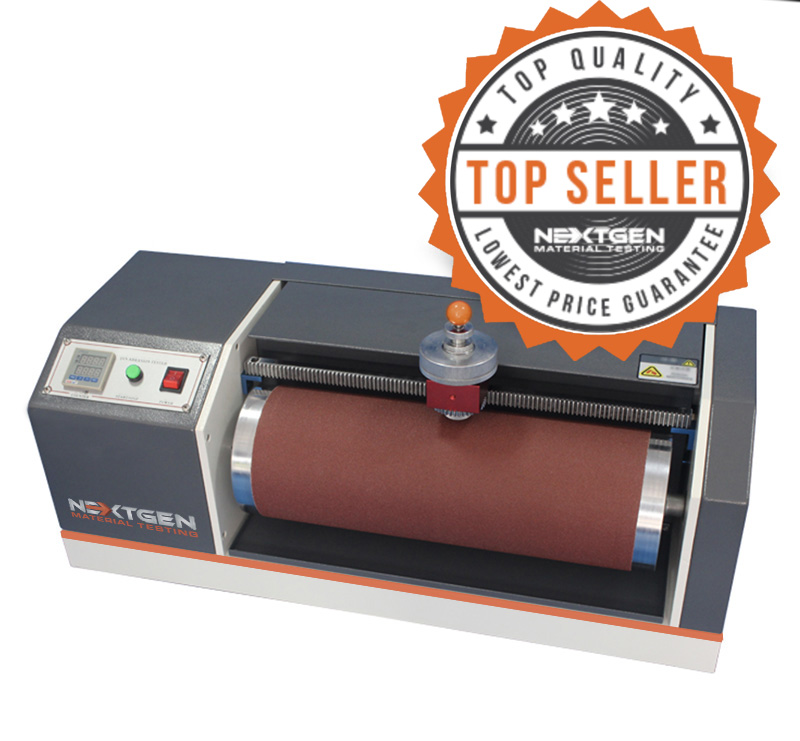
DIN Abrasion Tester
GenDin, is designed to conform to the ASTM D5963 and IS0 4649 standards. This top quality and highly popular abrasion tester will allow you to measure the abrasion resistance of rubbers (vulcanized thermo set rubbers and thermoplastic elastomers) that are subject to abrasive/frictional wear on their actual service. Since wear is always a result of abrasion, different test methods have been developed for the simulation of long term wear.
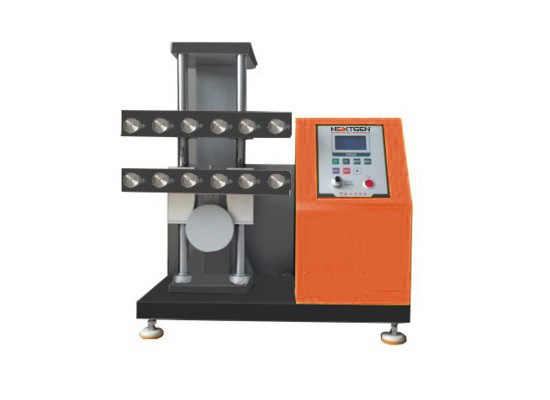
Demattia Flex Cracking Tester
GenFlex tests the ability of rubber products to withstand repeated flexing without developing cracks is of prime importance where such products are used in conditions undergoing repeated flexing. Flexing endurance of rubber products is determined by simulating in laboratory the action of flexing repeatedly under standard conditions of speed, mode, and degree of flexing.
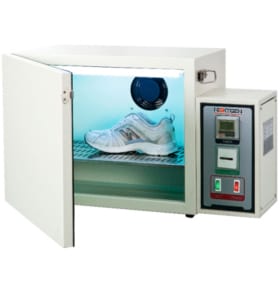
Discoloration Meter
The machine is used to simulate an environment of sunlight radiation on a specimen to identify the resistance of fabric to discoloration.
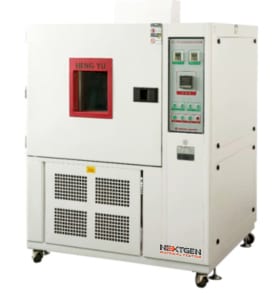
Freezing Tester - GenFreeze
GenFreeze is specially designed to test the characteristics of various materials in a cold environment to ensure suitability for use in a cold climate. Based on the testing demand, adjust the beater and flexing grip, then load to the desired position. It can be used to test rubbers, leather, and plastics, PU leather etc. The unit can be adjusted to meet different requirements.
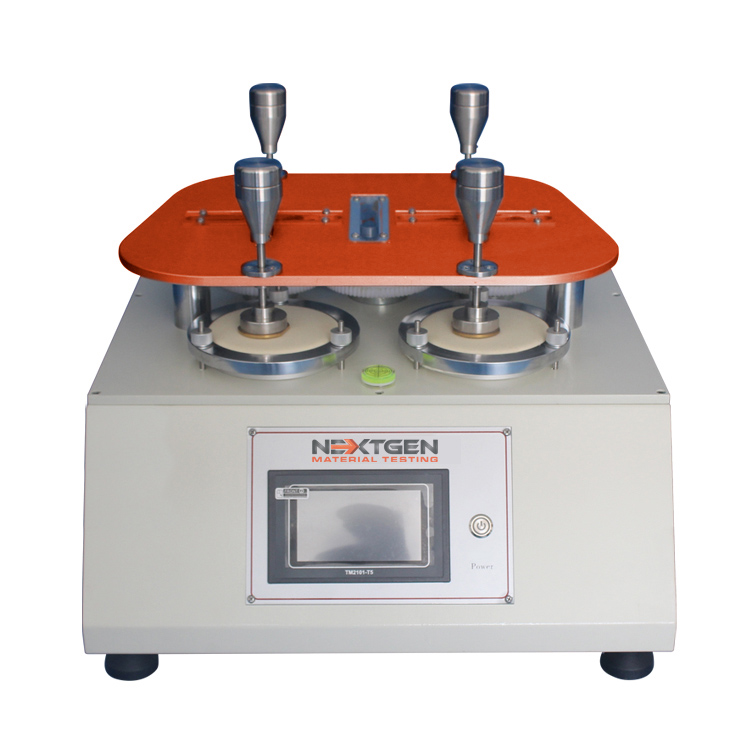
Martindale Abrasion Tester - GenDale
GenDale is mainly used to test shoe fabric, shoe lining, and many other types of shoe related materials. The unit can test up to four specimens at the same time for abrasion. The fabric specimen is measured by having rubbing applied on it via a complex direction of back and forth motion. The accuracy of abrasion strength is determined by the specific number of cycles conducted until a hole appears in the test area of the fabric specimen.
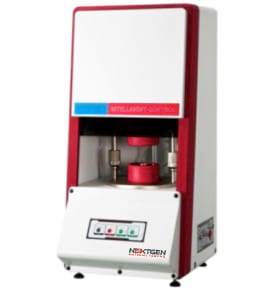
Mooney Viscosity Testing Machine - GenMooney
GenMooney is a viscosity testing machine is applied to measure the viscosity of the unmixed or mixed unvulcanized natural rubber, synthetic rubber and regenerated rubber .This tester has many functions such as fast warming, maintaining temperature, data stability, etc. It is equipped with an automated calibration feature for a simple data calibration of each experiment.
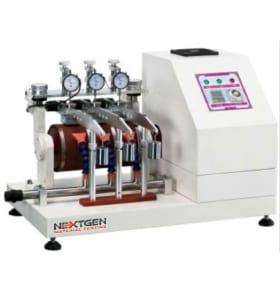
NBS Rubber Abrasion Tester - GenNBS
GenNBS is used to test the abrasion resistance of vulcanized rubber or other rubber compounds. It is commonly used for the soles and heels of footwear. It has an intelligent power failure recovery system. The unit conducts measurements through volumetric loss of specimens exposed to the action of a normalized abrasive medium secured to a rotations cylinder.
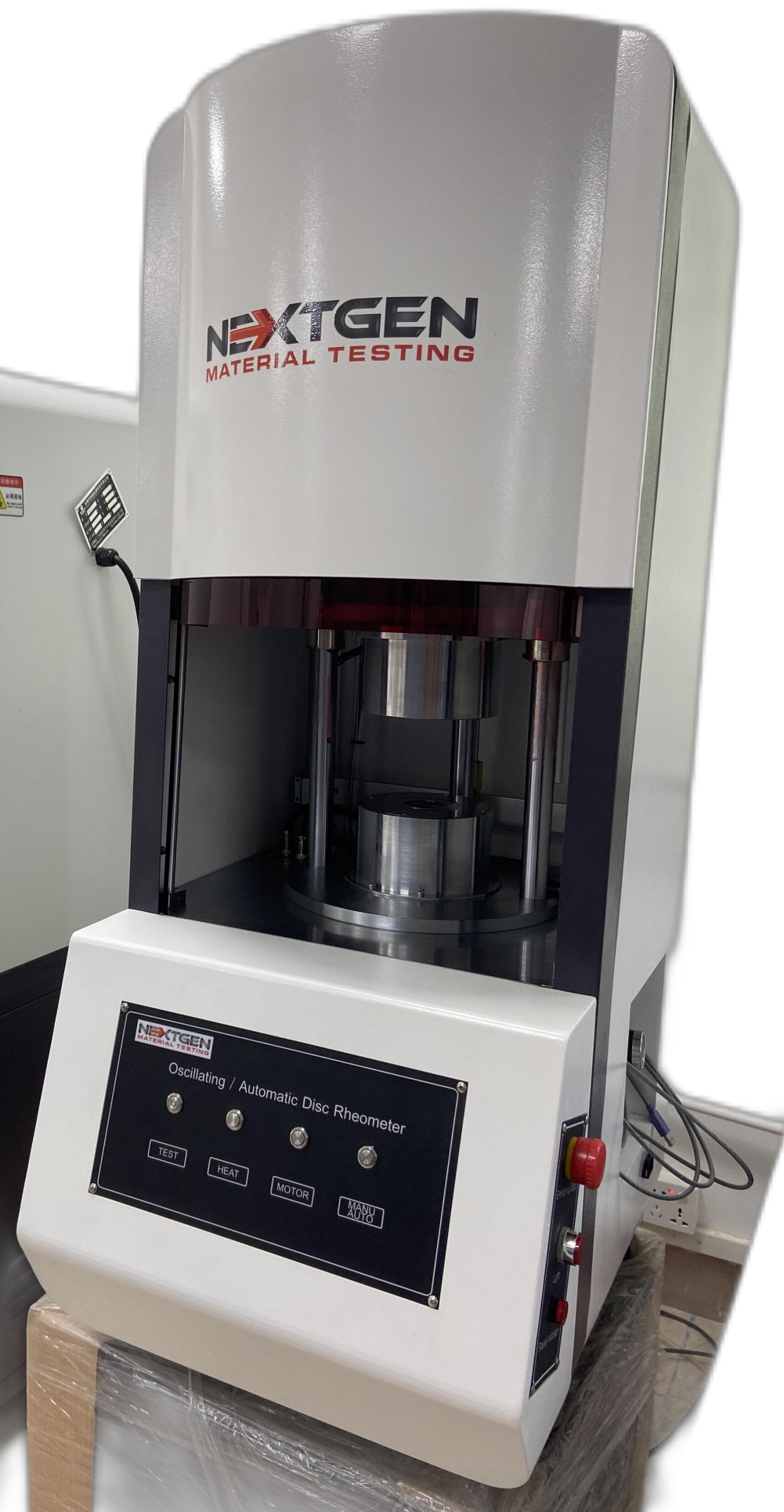
Oscillating / Automatic Disc Rheometer (ODR)
This machine is designed to get the characteristic curve and characteristic parameters of rubber vulcanization by measuring the applied moment of rubber to the oscillating dye body. NG-ODR rotor-free vulcameter has an excellent stability of results. The data and diagrams can be used as a reference for development, research and production quality.
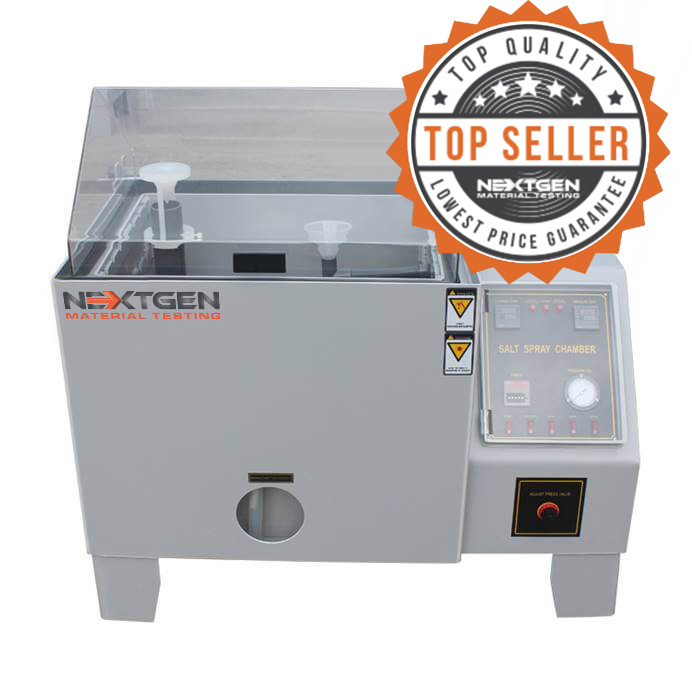
Salt Spray Tester - GenSalt
GenSalt is designed to test the surface of different materials for resistance to corrosion. The unit is commonly used to test coated materials of a metallic nature in a controlled corrosive environment. The test can be used on rust-proof painting, anodizing, electroplating and rust-proof of grease. The machine imitates expedited corrosion process via salt spraying on a given test sample to identify the corrosion (oxides) resistance. Test results are based on the longevity of time a material can resist visible corrosion on the test sample.
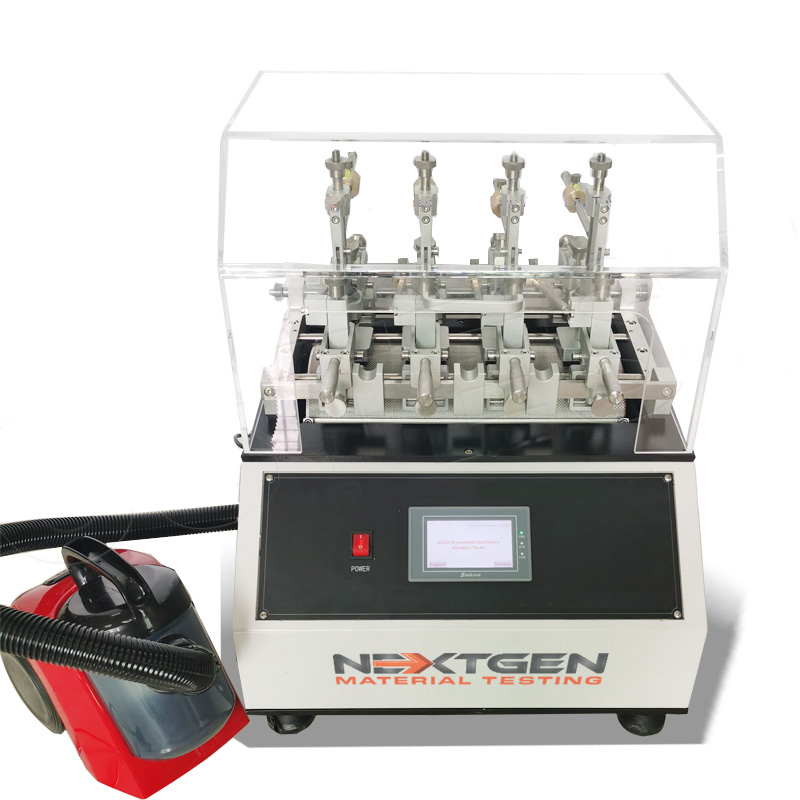
Wyzenbeek Abrasion Tester - GenWyze
The machine is designed to test the abrasion resistance of fabrics and metals. The abrasion of fabrics is tested when the specimen is pulled over the frame and rubbed against an abradant over a curved surface. The number of cycles, also known as double rubs, conducted on the specimen before the fabric shows visible wear is used to determine the rating of abrasion.

Vertical Rebound Resilience Tester - GenRebound
GenRebound tests the resilience of rubber compounds. The machine must be adjusted in a horizontal position and the plunger raised at a specific height. The plunger is then released onto the specimen for a given number of impacts. The measurements are based on the 4th, 5th, and 6th impacts. The average of the three (3) measurements is then calculated for the test result. The machine is highly useful in production of compounds designed to absorb vibration or shock according to the ASTM standards.
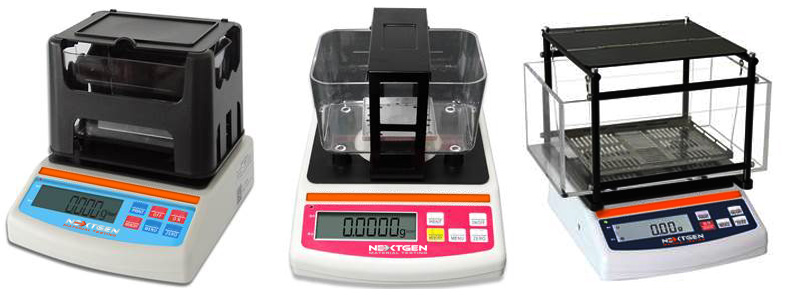
Digital Densimeter Systems
Description The NG-DM-A Series offers high-accuracy digital Densimeters designed for a wide variety of material testing needs. These elegant and compact densimeter systems offer capacity ranges from 150g to 3000g with accuracy of 0.001g/cm3 down to 0.0002g/cm3. Advanced Densimeter System […]
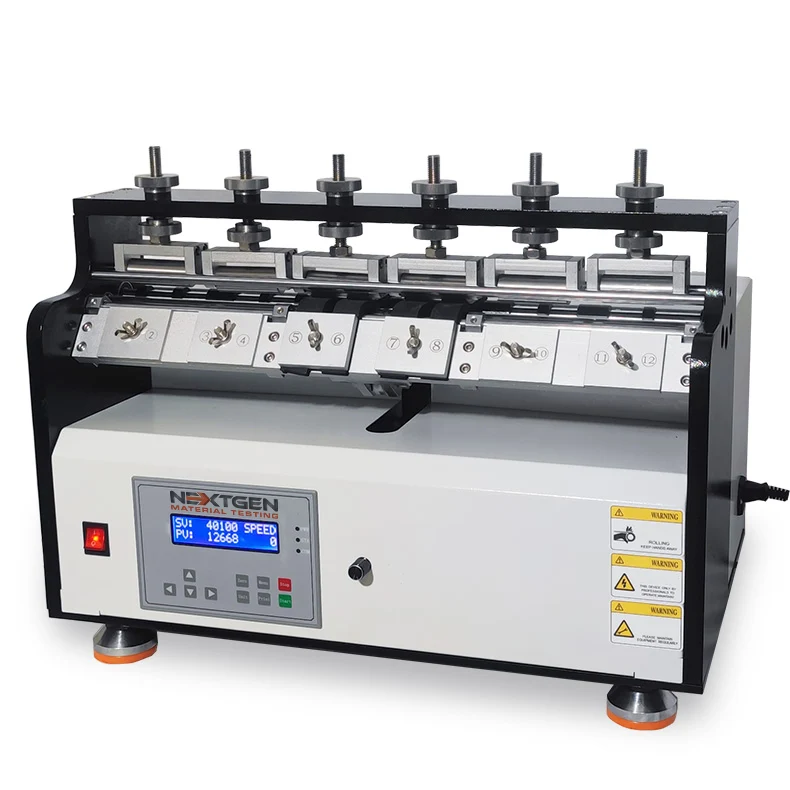
Ross Flex Tester
Ross Flex Tester is designed to determine the resistance of vulcanized or synthetic elastomers to cut growth. The system does so under continuously bend flexing in 90°.